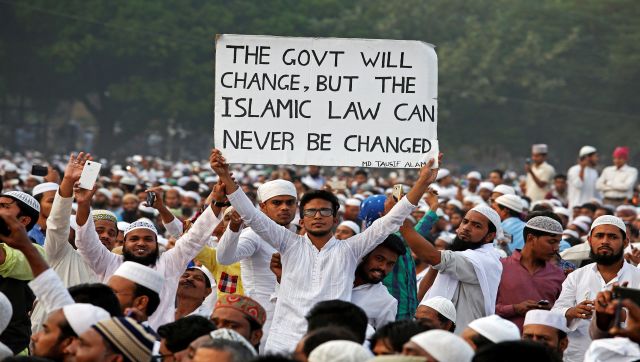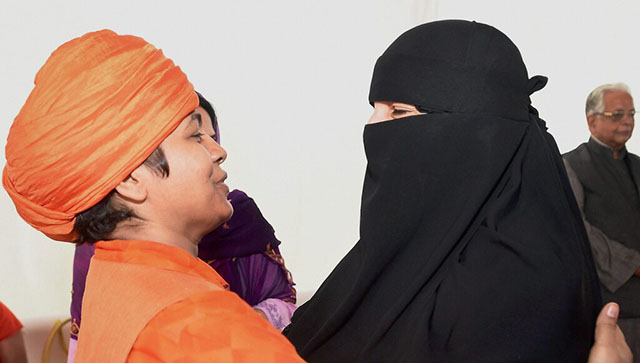The debate for a Uniform Civil Code (UCC) is again a part of the popular discourse in India. UCC simply means a common law to govern all civil relations, specifically marriage, divorce, succession, etc. Different religious laws currently govern people belonging to different religious denominations. For instance, a Hindu’s marriage will be governed by the Hindu Marriage Act, 1955, whereas the same will not apply to Muslims, and their own religious laws will govern them.
Even though politicians and legal luminaries have been giving their opinions on the ‘constitutionality’ of the measure, strictly speaking, the terms of the Constitution do not really leave any scope for a debatable legal grey area. Article 44 of the Constitution lays down in clear terms that enactment of a UCC shall be one of the objectives of the state of India. If a policy objective, such as the UCC, is mentioned in the Constitution itself, it is nearly impossible to argue that its enactment will be unconstitutional. The debate, thus, is technical and is cast into an old legal battle between Fundamental Rights (FRs) and Directive Principles of State Policy (DPSPs).
It is pertinent that the technicalities of this debate be understood before attempting to deal with its terms. The FRs figure in Part III of the Constitution and DPSPs figure in Part IV of the Constitution. FRs have been made enforceable in the scheme of our Constitution, and one can approach the high courts and the Supreme Court in case of a violation of any of their FRs. However, the DPSPs are not enforceable by any court but serve as directions to the government of the day to frame laws accordingly. In the current debate, it is argued that the enactment of a UCC, even though it may fulfill a DPSP, violates Article 25, which guarantees freedom to practice, profess and propagate one’s religion.
The flaw in the above argument is straightforward. The question which is cast in terms of pitting FRs against the DPSPs is itself wrong, and it will be argued that the enactment of the UCC will be constitutional even if it was not mentioned as a DPSP. Thus, this entire debate of FRs v DPSPs is wholly unnecessary.
***
Also Read
If Britain’s Christian roots don’t turn it theocratic, how will India’s Hindu identity make it less secular, democratic? Uniform Civil Code: One nation, two different sets of rules based on religion is an oxymoron Uniform Civil Code: BJP rushes to tick the third and final box Karnataka hijab controversy: Why Modi government should seriously think about Uniform Civil Code***
First, it is important to address the terms of Article 25(1) in order to understand the correctness of the argument that is cast around it. The provision reads as follows:
25. Freedom of conscience and free profession, practice and propagation of religion
(1) Subject to public order, morality and health and to the other provisions of this Part, all persons are equally entitled to freedom of conscience and the right freely to profess, practise and propagate religion
A plain reading of the provision clarifies that this FR is subject to public order, morality, health and every other FR (other provisions of this part, means all the other FRs. Part here means Part III, which includes all FRs). It is important to note that no other FR in our Constitution starts with the limitations which are placed on it. The language makes it absolutely subservient to every other FR. It is easy to conclude that the FR to religion is the FR to which the Constitution gives the least importance and potency. It will be guaranteed only when no other FR is impacted. This should also lay to rest arguments that the constitution guarantees absolute rights to minorities . It must be emphasised that no right, least of all the right to religion, is absolute and reasonable restrictions can be placed on them.
Therefore, even if there was no Article 44 at all in the Constitution, freedom of religion as per the terms of Article 25 doesn’t entail any absolute right to be governed by your own religious laws under any condition. This is more so because Article 15(1), which is also an FR, provides:
(1) The State shall not discriminate against any citizen on grounds only of religion, race, caste, sex, place of birth or any of them
It is abundantly clear by the language of this provision that the state can’t discriminate amongst its citizens by making laws which selectively apply to particular religious denominations. It is difficult to reconcile the existence of separate religious personal laws against the existence of a clear cut mandate of the Constitution to not discriminate on the basis of religion. These are arguably justified under Article 25. However, this argument is also wrong because Article 25 is subordinate to Article 15 and every other FR, as per its own terms. Thus, it becomes very easy to deduce that the existence of separate religious laws, even though that is the position currently, is wrong and unconstitutional because of a clear violation of Article 15.
The UCC, therefore, becomes an implicit guarantee because of the guarantee of non-discrimination on the grounds of religion. DPSP, accordingly, should be viewed as an FR. Article 44 is totally needless to reach this deduction, and so is the debate between DPSPs and FRs. However, the presence of Article 44 in the Constitution directly validates such a deduction.
The author is an Assistant Professor of Law at Maharashtra National Law University Mumbai. Views expressed are personal.
Read all the Latest News , Trending News , Cricket News , Bollywood News , India News and Entertainment News here. Follow us on Facebook , Twitter and Instagram .
)
)
)
)
)